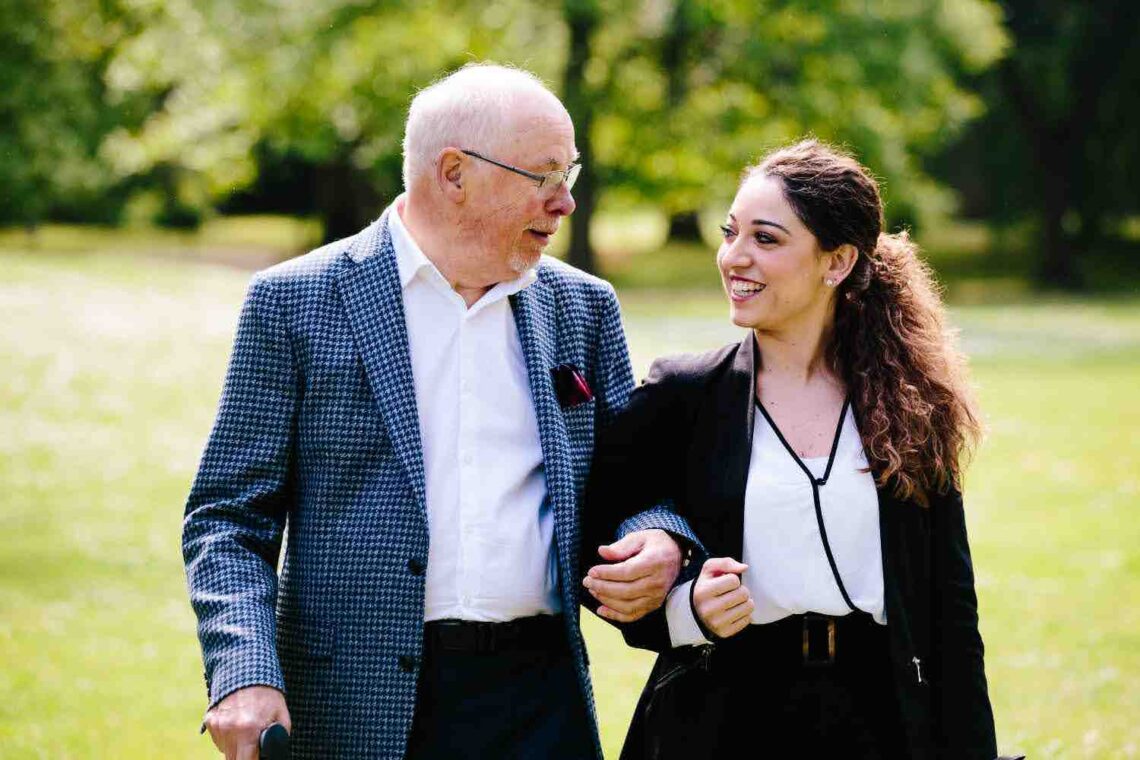When someone you love is living with dementia, you need more than just daily support. You need clinical expertise that recognises health changes before they become serious. At Hometouch, our dementia care specialists use the RESTORE2 Mini to identify early warning signs. This NHS-recognised assessment tool helps prevent unnecessary hospital admissions and provides health monitoring at home.
What is the RESTORE2 Mini?
The RESTORE2 Mini is a clinical assessment tool from NHS England. It helps carers recognise early signs of health changes in home settings. This tool focuses on identifying “soft signs” rather than waiting for obvious symptoms.
The tool trains carers to observe changes in:
- Behaviour patterns and mood
- Appetite and eating habits
- Mobility and physical function
- Sleep patterns and energy levels
When concerns arise, carers use structured communication methods like SBARD. This means Situation, Background, Assessment, Recommendation, Decision. Healthcare professionals receive precise information to make informed care decisions.
RESTORE2 vs RESTORE2 Mini: What’s the difference?
The RESTORE2 tool was designed for trained nursing staff in care homes. It includes structured physical observations such as blood pressure monitoring. This requires medical equipment and training that isn’t practical for home care.
RESTORE2 Mini was created specifically for home and community care. It focuses on soft signs that carers can observe daily. Changes in appetite, mobility, mood, or behaviour guide clinical decisions.
When carers notice these subtle changes, they share their observations with healthcare professionals. Your loved one receives appropriate medical attention based on clinical assessments.
Why early detection matters in dementia care
People living with dementia face increased risks from common health issues. Infections, delirium, falls, and dehydration develop quickly. These conditions often present differently than in people without dementia.
Without proper training, subtle warning signs are easily missed. A slight appetite change might be dismissed as a “bad day,” but it could indicate the early stages of a urinary tract infection. Increased restlessness may seem like dementia progression rather than developing delirium.
Hospital admissions are particularly distressing for people living with dementia. Unfamiliar environments increase confusion and agitation, and the stress of hospitalisation often accelerates cognitive decline. Research shows early intervention at home prevents many emergency admissions, keeping your loved one safe while maintaining their quality of life.
How Hometouch uses the RESTORE2 Mini in practice
Our dementia-trained carers integrate RESTORE2 Mini observations into daily care routines. This isn’t an additional task – it’s woven into natural interactions throughout the day.
“RESTORE2 Mini has been a fantastic initiative for Hometouch. A group of our carers were able to use the training they received to escalate concerns about their care recipient. This escalation prompted efficient and swift action to the GP and supported care management at home, thus preventing hospital admission”. – Dimple Chandarana – Head of Clinical Governance and Registered Manager
Clinical expertise that makes a difference
Hometouch’s doctor-founded approach means the RESTORE2 Mini sits within complete clinical oversight. Our clinical team combines this NHS tool with assessments designed for people living with dementia.
This medical foundation means our care plans adapt based on clinical evidence. When carers observe changes, clinical expertise guides next steps. Care decisions reflect medical knowledge rather than assumptions.
Our ongoing clinical oversight means families receive expert guidance throughout the care journey. This supports your whole family approach gives confidence that health monitoring meets professional standards.
Benefits for families and loved ones
The RESTORE2 Mini gives families clear benefits for both the person receiving care and everyone involved:
Maintaining independence: Early detection means health issues are addressed promptly. Your loved one remains at home safely for longer.
Familiar surroundings: Preventing unnecessary hospital admissions means people living with dementia stay comfortable. Their cognitive function and emotional well-being benefit from familiar environments.
Care confidence: Knowing your loved one’s carer recognises early warning signs provides reassurance. Health changes won’t go unnoticed with clinical oversight.
Proactive care: Instead of waiting for crises, families address health concerns early. Intervention happens when it’s most effective.
What sets Hometouch apart
Our combination of dementia-trained carers and NHS-recognised clinical tools creates expert-led care at home. While other care agencies offer basic support, we deliver clinical expertise that adapts to changing needs.
This clinical approach reflects our commitment to measurable outcomes. Using tools recommended by NHS England ensures our care meets the highest clinical standards. We maintain the personalised attention that makes home care effective.
Our doctor-founded expertise shapes every aspect of care. From initial assessment to ongoing monitoring, medical knowledge and nursing oversight guide decisions.
Taking the next step
Our clinical approach using the RESTORE2 Mini represents one aspect of expert-led dementia care at home. Clinical tools like RESTORE2 Mini work with our personalised matching process. Together, they deliver care that keeps people safe while maintaining independence.
We can explain how this clinical monitoring supports your loved one’s specific needs. Our care experts provide clear guidance about what’s possible for your family.
Talk to one of our care experts about clinical monitoring at home – no pressure, just answers to your questions.
